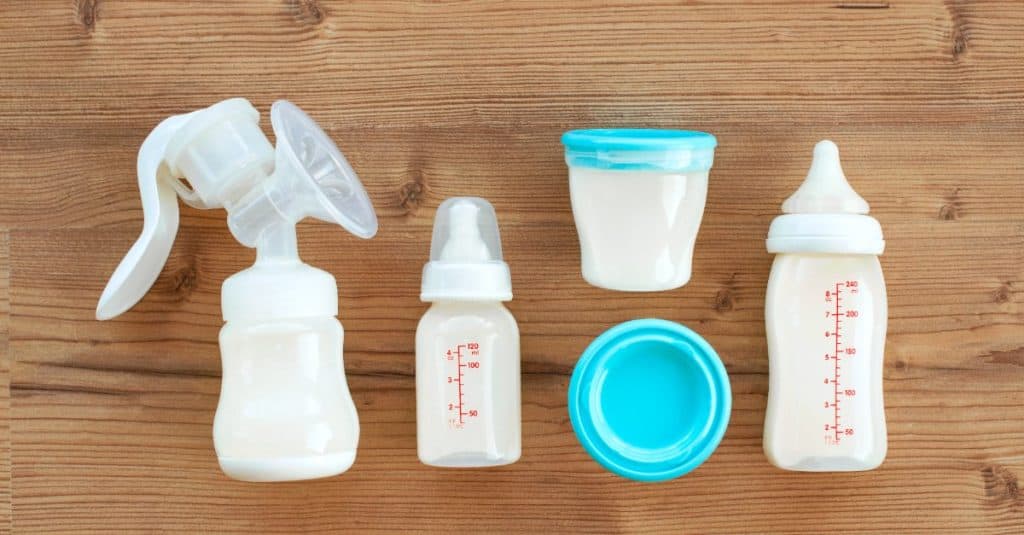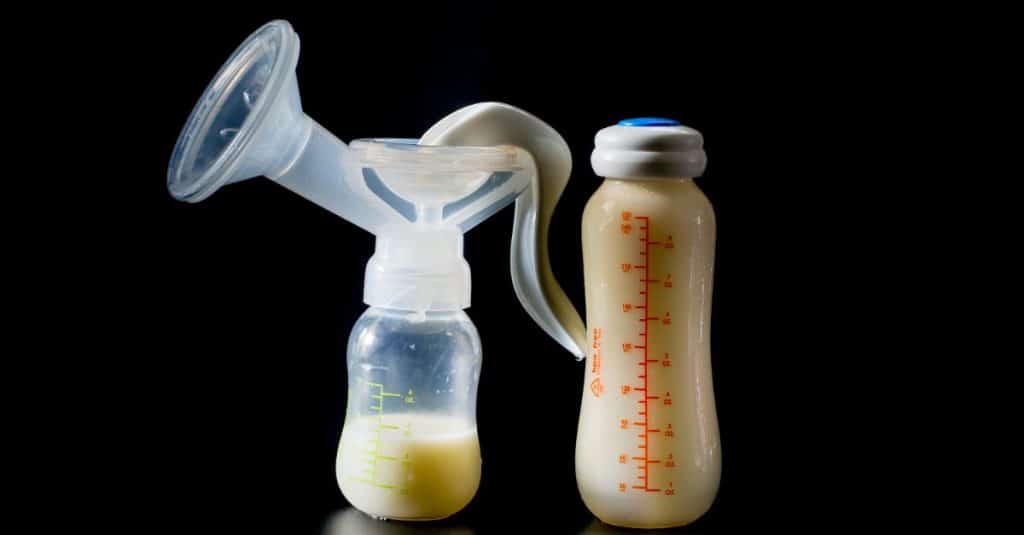Every mother knows that the duties of motherhood begin well before the birth of the child. Aside from preparing the home for the baby and learning to become a parent, some mothers actually do not have to wait for the baby to begin pumping milk.
Pumping while pregnant can mean certain advantages, such as harvesting nutrient-rich colostrum, getting a milk reserve started early, and learning how much milk you can produce. However, it would also mean additional expenses and responsibilities for the parents.
This article will talk about the various pros and cons of pumping while pregnant.
Pros and Cons of Pumping While Pregnant
Understandably, a baby has one job: to grow. While the mother has the singular job of being a mother, that role carries duties too many to mention. Among the priorities of the mother is to ensure that the baby is getting the necessary amount of nutrients needed for growth and development.
Among the different ways of feeding a child, breastfeeding might be the method most recommended as it confers multiple benefits. Aside from developing the bond between mother and child, it can help lower the risk of certain diseases – even lower the risk of Sudden Infant Death Syndrome (SIDS).
Aside from breastfeeding, there are times when mothers are inclined to pump milk as well. Pumping milk, or expressing milk, is another convenient method of storing milk for later consumption.
In addition to having a reserve for the baby, pumping milk can also be beneficial as it gives the mother more control over the feeding schedule, and it can even alleviate soreness when the breasts are engorged.
However, not many people know that women can already pump milk even before giving birth. The type of milk produced in the early stages is called colostrum. Hence, pumping milk while pregnant is also known as harvesting colostrum.
Compared to regular milk, colostrum is different in a few ways. For one, colostrum can appear to be yellow or light orange, prompting other people to call this substance “liquid gold.” Aside from its appearance, colostrum is also typically thicker and sticky compared to regular milk.
Furthermore, colostrum has been studied to be heavily dense with nutrients. A 2002 review paper published in Nutrition Research enumerates the various benefits of colostrum including its effects on the immune system, as a food supplement, and its ability to grow and repair tissue.
If pumping while pregnant is something you want to consider, it is best to learn about the pros and cons of pumping while pregnant to ensure that you are making the best decision for yourself and your baby.
Pros of Pumping While Pregnant
1. Harvesting Nutrient-Rich Food for the Baby
As mentioned earlier, colostrum has a different chemical composition compared to breast milk produced later after the delivery of the baby. While regular breast milk is still considered to be packed with nutrients, it can be beneficial to collect colostrum for the nutrient content as well.
When looking at the macronutrients, colostrum is said to have a higher protein concentration compared to regular breast milk. Couple with lower sugar and fat concentrations, this makes colostrum easy to digest for babies with developing digestive systems.
Protein is incredibly important for a quickly developing baby as ingested protein is broken down by the body into amino acids, the simple building blocks of protein, so that the body has the necessary substances to develop the baby’s developing body and musculature.
Additionally, colostrum has been found to contain certain antibodies that are essential for the baby’s developing immune system. Particularly, an antibody called slgA (secretory immunoglobulin A) is able to promote immunity in the baby’s digestive tract against possible allergens.
The difference in chemical composition in colostrum and regular breast milk correlates to the changing needs of the baby as they grow. Understandably, the baby needs immune boosters right away.
2. Getting a Milk Reserve Started Early
Babies sleep most of the day away with newborns needing as much as 16 hours of sleep each day. When they are not asleep, their activities are limited. One of the primary activities that babies do when they are awake is feed.
Pumping while pregnant means you will be getting a milk reserve started earlier than most mothers. Being able to produce a milk reserve early achieves certain benefits.
For one, having a reserve early helps mitigate emergencies. There might be times when you are having trouble producing milk, or time when you have run out of formula. Having a reserve of milk stashed away prevents these emergencies from spiraling into something serious.
Another benefit to having a milk reserve is that you are able to have more freedom in your life. Many mothers feel that they are required to be tethered to the baby, especially those who exclusively breastfeed.
Being able to store milk away means that other people can feed the baby as well. Being able to share that responsibility means that you will be able to do other things and go to other places. You can be more comfortable leaving your baby to other people, such as family and friends, knowing that they are able to feed your baby too.
3. Determining Your Milk Output
One of the most common sources of anxiety for new mothers is when they begin to breastfeed their babies and realize they are not producing enough milk.
Oftentimes, new mothers just expect to be able to produce enough milk for their babies. While this may be so for many women, many others have varying experiences. Some can get frustrated finding out that they are not able to produce enough milk for their baby.
Pumping while pregnant is an easy way to let you know your milk output early. This can put your mind at ease if you find yourself producing an ample amount.
On the other hand, it can also prepare you earlier if you find out that you do not produce as much milk as the baby needs. Learning this early can let you figure things out, such as deciding to supplement breastfeeding with formula.
Cons of Pumping While Pregnant
1. More Expenses Upfront

Having a baby is a lot of work, and it can really hit someone’s wallet. Pregnancy already comes with a ton of expenses, such as going to the doctor for check-ups and preparing the baby’s nursery. With so many expenses, some parents are not too eager to find new things to have to pay for.
Unfortunately, pumping while pregnant simply means adding another set of things to buy. Pumping while pregnant means having to purchase a breast pump, bottles, and storage packs. Even if you have already planned to buy these things, it can still feel harder when lumping all these purchases in one go.
2. Additional Responsibilities
Aside from the expenses, pregnancy also means having to do a lot of work. While it may have its benefits, pumping while pregnant also means additional responsibilities for the parents. It is important to be aware of these responsibilities when considering whether to pump while pregnant.
For one, pumping while pregnant means having to actually express milk. This can take time, and it can happen anywhere. One of the first responsibilities you will need to do is to bring your milk pumping equipment and supplies wherever you go.
The home is the most convenient and relaxing place for most women to express milk. However, some might have to do it at work if necessary.
Aside from having to bring the pump and storage bags, it would also mean having a cooler in the car to ensure that the expressed milk is stored properly.
After harvesting colostrum, another added responsibility would be to clean up the things used for pumping milk. Due to the safety requirements for the baby, everything must be washed, cleaned, and sanitized to ensure that the milk being harvested is not getting contaminated with dangerous bacteria.

